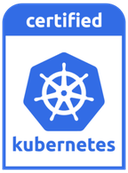* Problem: Fedora CoreOS images are manually uploaded to GCP. When a cluster is created with a stale image, Zincati immediately checks for the latest stable image, fetches, and reboots. In practice, this can unfortunately occur exactly during the initial cluster bootstrap phase. * Recommended: Upload the latest Fedora CoreOS image regularly * Mitigation: Allow a failed bootstrap.service run (which won't touch the done ConditionalPathExists) to be re-run by running `terraforma apply` again. Add a known issue to CHANGES * Update docs to show the current Fedora CoreOS stable version to reduce likelihood users see this issue Longer term ideas: * Ideal: Fedora CoreOS publishes a stable channel. Instances will always boot with the latest image in a channel. The problem disappears since it works the same way AWS does * Timer: Consider some timer-based approach to have zincati delay any system reboots for the first ~30 min of a machine's life. Possibly just configured on the controller node https://github.com/coreos/zincati/pull/251 * External coordination: For Container Linux, locksmith filled a similar role and was disabled to allow CLUO to coordinate reboots. By running atop Kubernetes, it was not possible for the reboot to occur before cluster bootstrap * Rely on https://github.com/coreos/zincati/issues/115 to delay the reboot since bootstrap involves an SSH session * Use path-based activation of zincati on controllers and set that path at the end of the bootstrap process Rel: https://github.com/coreos/fedora-coreos-tracker/issues/239
Typhoon 
Typhoon is a minimal and free Kubernetes distribution.
- Minimal, stable base Kubernetes distribution
- Declarative infrastructure and configuration
- Free (freedom and cost) and privacy-respecting
- Practical for labs, datacenters, and clouds
Typhoon distributes upstream Kubernetes, architectural conventions, and cluster addons, much like a GNU/Linux distribution provides the Linux kernel and userspace components.
Features 
- Kubernetes v1.18.0 (upstream)
- Single or multi-master, Calico or flannel networking
- On-cluster etcd with TLS, RBAC-enabled, network policy
- Advanced features like worker pools, preemptible workers, and snippets customization
- Ready for Ingress, Prometheus, Grafana, CSI, or other addons
Modules
Typhoon provides a Terraform Module for each supported operating system and platform.
| Platform | Operating System | Terraform Module | Status |
|---|---|---|---|
| AWS | Container Linux | aws/container-linux/kubernetes | stable |
| Azure | Container Linux | azure/container-linux/kubernetes | alpha |
| Bare-Metal | Container Linux | bare-metal/container-linux/kubernetes | stable |
| Digital Ocean | Container Linux | digital-ocean/container-linux/kubernetes | beta |
| Google Cloud | Container Linux | google-cloud/container-linux/kubernetes | stable |
Typhoon is available for Fedora CoreOS.
| Platform | Operating System | Terraform Module | Status |
|---|---|---|---|
| AWS | Fedora CoreOS | aws/fedora-coreos/kubernetes | stable |
| Bare-Metal | Fedora CoreOS | bare-metal/fedora-coreos/kubernetes | beta |
| Google Cloud | Fedora CoreOS | google-cloud/fedora-coreos/kubernetes | beta |
Typhoon is available for Flatcar Container Linux.
| Platform | Operating System | Terraform Module | Status |
|---|---|---|---|
| AWS | Flatcar Linux | aws/container-linux/kubernetes | stable |
| Azure | Flatcar Linux | azure/container-linux/kubernetes | alpha |
| Bare-Metal | Flatcar Linux | bare-metal/container-linux/kubernetes | stable |
| Google Cloud | Flatcar Linux | google-cloud/container-linux/kubernetes | alpha |
| Digital Ocean | Flatcar Linux | digital-ocean/container-linux/kubernetes | alpha |
Documentation
- Docs
- Architecture concepts and operating systems
- Fedora CoreOS tutorials for AWS, Bare-Metal, and Google Cloud
- Flatcar Linux tutorials for AWS, Azure, Bare-Metal, DigitalOcean, and Google Cloud
Usage
Define a Kubernetes cluster by using the Terraform module for your chosen platform and operating system. Here's a minimal example:
module "yavin" {
source = "git::https://github.com/poseidon/typhoon//google-cloud/container-linux/kubernetes?ref=v1.18.0"
# Google Cloud
cluster_name = "yavin"
region = "us-central1"
dns_zone = "example.com"
dns_zone_name = "example-zone"
# configuration
ssh_authorized_key = "ssh-rsa AAAAB3Nz..."
# optional
worker_count = 2
worker_preemptible = true
}
# Obtain cluster kubeconfig
resource "local_file" "kubeconfig-yavin" {
content = module.yavin.kubeconfig-admin
filename = "/home/user/.kube/configs/yavin-config"
}
Initialize modules, plan the changes to be made, and apply the changes.
$ terraform init
$ terraform plan
Plan: 62 to add, 0 to change, 0 to destroy.
$ terraform apply
Apply complete! Resources: 62 added, 0 changed, 0 destroyed.
In 4-8 minutes (varies by platform), the cluster will be ready. This Google Cloud example creates a yavin.example.com DNS record to resolve to a network load balancer across controller nodes.
$ export KUBECONFIG=/home/user/.kube/configs/yavin-config
$ kubectl get nodes
NAME ROLES STATUS AGE VERSION
yavin-controller-0.c.example-com.internal <none> Ready 6m v1.18.0
yavin-worker-jrbf.c.example-com.internal <none> Ready 5m v1.18.0
yavin-worker-mzdm.c.example-com.internal <none> Ready 5m v1.18.0
List the pods.
$ kubectl get pods --all-namespaces
NAMESPACE NAME READY STATUS RESTARTS AGE
kube-system calico-node-1cs8z 2/2 Running 0 6m
kube-system calico-node-d1l5b 2/2 Running 0 6m
kube-system calico-node-sp9ps 2/2 Running 0 6m
kube-system coredns-1187388186-zj5dl 1/1 Running 0 6m
kube-system coredns-1187388186-dkh3o 1/1 Running 0 6m
kube-system kube-apiserver-controller-0 1/1 Running 0 6m
kube-system kube-controller-manager-controller-0 1/1 Running 0 6m
kube-system kube-proxy-117v6 1/1 Running 0 6m
kube-system kube-proxy-9886n 1/1 Running 0 6m
kube-system kube-proxy-njn47 1/1 Running 0 6m
kube-system kube-scheduler-controller-0 1/1 Running 0 6m
Non-Goals
Typhoon is strict about minimalism, maturity, and scope. These are not in scope:
- In-place Kubernetes Upgrades
- Adding every possible option
- Openstack or Mesos platforms
Help
Ask questions on the IRC #typhoon channel on freenode.net.
Motivation
Typhoon powers the author's cloud and colocation clusters. The project has evolved through operational experience and Kubernetes changes. Typhoon is shared under a free license to allow others to use the work freely and contribute to its upkeep.
Typhoon addresses real world needs, which you may share. It is honest about limitations or areas that aren't mature yet. It avoids buzzword bingo and hype. It does not aim to be the one-solution-fits-all distro. An ecosystem of Kubernetes distributions is healthy.
Social Contract
Typhoon is not a product, trial, or free-tier. It is not run by a company, does not offer support or services, and does not accept or make any money. It is not associated with any operating system or platform vendor.
Typhoon clusters will contain only free components. Cluster components will not collect data on users without their permission.
Donations
Typhoon does not accept money donations. Instead, we encourage you to donate to one of these organizations to show your appreciation.
- DigitalOcean kindly provides credits to support Typhoon test clusters.